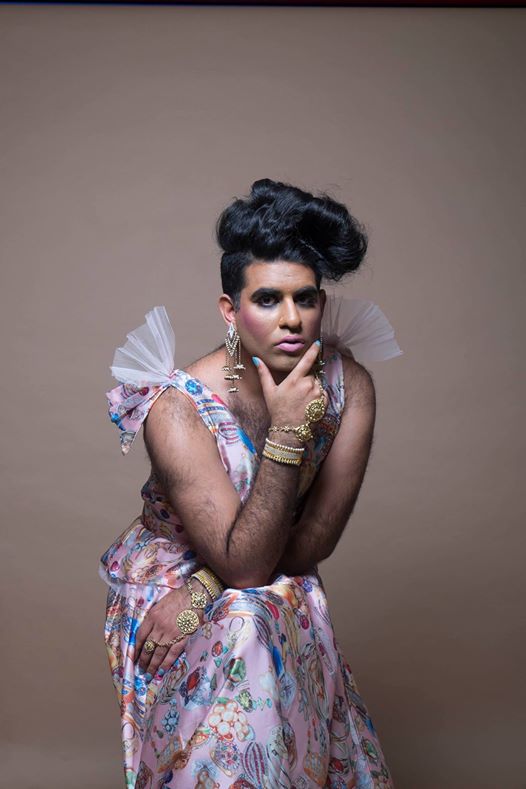Pritha Khanal, Kathmandu, Nepal, SSH Blog Correspondent
“I don’t want to rank levels of harassment because the thing about harassment is that even after the act you are traumatized by it. And trauma doesn’t have hierarchies — sometimes I can be more hurt by a word than I can be a fist.” – Alok Vaid Menon
Gender is a social construct and it hasn’t been very inclusive. In many societies, it only has categorized roles for heterosexual males and females. The population of LGBTQ thus is largely excluded by this inherently patriarchal system. The third gendered community is flatly denied by large amounts of population, and hatred for them is twice as much. People, including some ruling governments, policy-makers, politicians and icons, believe “God” only created two sexes and any others are showing themselves up, seeking attention or going against the natural law.
Gender non-conforming people are often known as queer or femme or trans-sexual and they are slowly coming out of closet through various forms of art and literature. One of these great and rising artists is Alok Vaid Menon who uses the pronoun they/them and is originally from India and is now residing in the United States. They represent and promote not only LGBTQ rights, but they also protest against a patriarchal system of gender division and roles, white supremacy and cis supremacies.
Having followed them on Instagram for quite some time now, I noticed that they face harassment ten times worse than me and other cis gender women I know.

Last month on 22nd May, Alok Vaid Menon set the stage on fire among Nepalese poetry lovers in Nepal Tourism Board, Kathmandu. In the event organized by QC bookshop, the popular queer artist and writer Menon enlightened the audience with the problems the transgender community have been facing on a daily basis. The issues which were so surprising to us were expected and every day for them and include: hatred, domination, bullying, being called at, being misunderstood and judged and HARASSED. (Excessively and severely harassed.) They shared the story of being beaten up inside an Australian metro once and how not a single person intervened to help.
Dressed in floral gown and high heels, carrying their body hairs as a pride and shining in the neon lip paints, Menon sings loudly, “I don’t call harassment as harassment; I call it torture. Torture of Patriarchy.”
Alok Vaid Menon agreed to do a short interview with me after I attended the program. The interview is focused mainly upon street harassment and their say on it.
1. As a member of the transgender community, how do you define harassment?
I don’t believe in harassment I believe in torture — by which I mean, I understand harassment to be an intentional use of intimidation, pain, fear, and violence in order to break down marginalized peoples.
2. What are the most common forms of harassment you come across on the street?
Being stared at. People literally just stop what they’re doing and stare at me, take photos of me, point at me.
3. What is the worst case of harassment you’ve ever experienced?
I don’t want to rank levels of harassment because the thing about harassment is that even after the act you are traumatized by it. And trauma doesn’t have hierarchies — sometimes I can be more hurt by a word than I can be a fist. So what I would say is that the most severe and intense forms of harassment that I experience are in the Western world (specifically the US and Australia).
4. How do you usually react during these moments?
I enter survival mode. I look down and try to take up as little space as possible. I start thinking about my options and how to get away safely.
5. How does it impact you psychologically?
I am traumatized by the level of harassment that I experience. It has had an extremely negative impact on my mental and physical health. It’s made me incredibly anxious and I have to constantly find ways to cope with it.
6. What according to you is the solution of these problems? Do you believe change is possible with more awareness and proper education to people or is it effective when victims react back?
The solution is ending patriarchy and the gender binary that upholds it. I notice that a lot of strategies when it comes to ending harassment are oriented around making women and trans people modify our behavior and appearances, and never around actually challenging societies which enable and encourage harassment against us. I don’t think education is necessarily the right approach because this is about power not prejudice. What we need is to name systems of violence like patriarchy, caste, and race — and strategize how to address them at their roots rather than their systems.
7. What do you want to say to society specifically in regards to street harassment and to the victims regardless of gender to rise against it?
It’s not your fault.
Pritha is doing her Master’s degree in Anthropology and her thesis is on the menstruation practice issues among rural teenagers in Nepal. She received a Bachelor’s degree in Social Work. She works in a non-governmental organization focused on women empowerment. Follow her blog www.prithakhanal.com and my Facebook account: @pritha.khanal.
